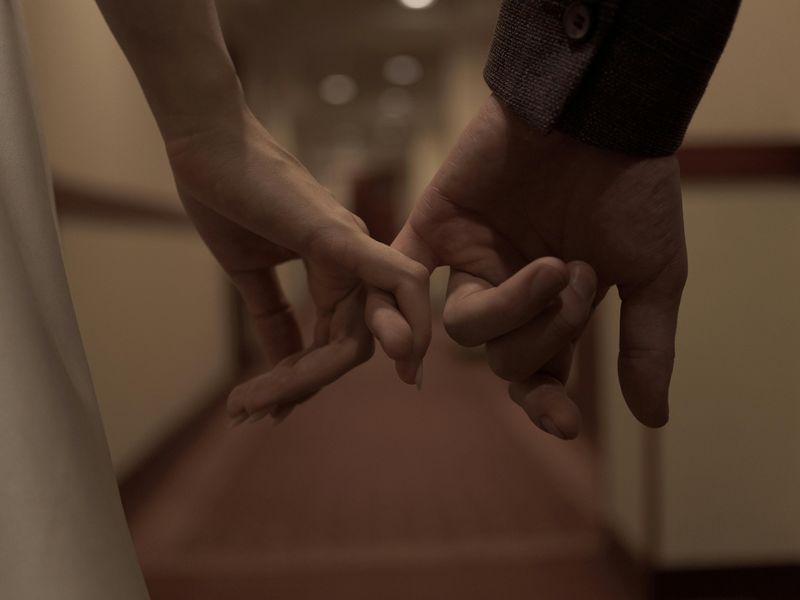Subtle Clues He Still Cares After a Fight (Even If He’s Pulling Away)

Fighting with someone you love can feel like walking on eggshells, especially when he seems distant afterward. Those silent moments and cold shoulders might make you wonder if things are over. But men often process conflict differently than women, and many guys still care deeply even when they seem to pull away. Looking for these subtle signs can help you understand what’s really going on beneath his quiet exterior.
1. He Checks In (Even Casually)

Those simple “Did you eat?” or “How was your day?” texts might seem ordinary, but they speak volumes about his feelings. Men who’ve emotionally checked out don’t bother with these daily check-ins.
When he asks about your basic needs or daily activities, he’s maintaining the connection in a way that feels safe to him. It’s his subtle way of saying, “I care about your wellbeing” without directly addressing the fight.
Pay attention to the timing too. If he reaches out during parts of the day when you normally talk, it shows he’s still honoring your routines despite the tension. These small gestures are his emotional breadcrumbs leading back to reconciliation.
2. He Doesn’t Stay Completely Silent

Silence after a fight can be deafening, but if he’s still responding to your messages or engaging in small talk, that’s a powerful indicator. Complete radio silence is easy; partial communication takes effort and shows he’s trying.
Notice his response patterns. Even short replies mean he’s choosing engagement over isolation. He might not be ready for deep conversation, but he’s keeping the door cracked open rather than slamming it shut.
Men often retreat to process emotions, but the fact that he’s still communicating at all means you’re on his mind. That middle ground between full conversation and complete silence is actually a healing space where reconnection can begin.
3. He Stays Physically Present

Physical proximity speaks louder than words after a heated argument. When he chooses to remain in the same room rather than retreating to another part of the house, his body is saying what his mouth can’t yet express.
Maybe he’s working on his laptop nearby instead of disappearing into his office. Perhaps he’s watching TV in the same room but maintaining some distance. These choices aren’t accidental – they’re deliberate decisions to stay in your orbit.
The physical space between you might feel charged with tension, but his presence itself is meaningful. By not completely removing himself, he’s signaling that the relationship still matters, even when words fail him.
4. He Brings Up Shared Routines

“Are we still going to your mom’s on Sunday?” Questions about future plans reveal his heart is still invested in your shared life. When a man mentions upcoming events or routines you normally do together, he’s showing that he sees a future beyond the current conflict.
These references might seem practical on the surface – asking about dinner plans or weekend activities – but they carry emotional weight. He’s confirming that your relationship rhythms still matter to him.
Listen for mentions of “we” and “us” in his conversation. These subtle linguistic choices indicate he’s still thinking as a team, not as separate individuals. Even during tension, these shared routine references are his way of reinforcing your connection.
5. He Softens His Tone Over Time

The evolution of his voice tells a story of healing. That sharp edge that cut through his words during your fight? When it gradually smooths into gentler tones, you’re witnessing his emotional thaw in real-time.
Men often struggle to verbalize forgiveness directly. Instead, they demonstrate it through subtle shifts in communication – softer volume, less clipped responses, and the return of warmth to their voice. The harsh tone was his armor; its removal signals safety and openness.
Watch for the return of his normal speaking rhythm and the disappearance of that defensive tension. These vocal shifts happen unconsciously and are honest indicators that his heart is softening, even if he hasn’t explicitly said “I’m not angry anymore.”
6. He Shows Affection in Small Ways

A fleeting touch as he passes you in the hallway. The way his hand lingers on your shoulder just a second longer than necessary. These micro-moments of physical connection speak volumes when words are still difficult to find.
After conflicts, many men return to physical affection before verbal reconciliation. His body language operates on a different timeline than his words. That casual brush of fingers while passing the salt or sitting slightly closer on the couch than yesterday – these aren’t accidents.
Look for these tiny bridges he’s building back to intimacy: maintaining eye contact a beat longer, the slight smile that appears when you enter a room, or how he positions himself facing you rather than away. His body is often more honest about his feelings than his words.
7. He Makes Practical Efforts

Actions truly do speak louder than words when he’s taking out the trash without being asked or fixing that leaky faucet right after your argument. For many men, doing practical tasks is their love language during conflict recovery.
That coffee he made exactly how you like it? The errand he ran without mentioning it? These aren’t random acts – they’re his way of saying “I care” without the vulnerability of direct words. Service becomes his path to reconnection.
Men often process emotions through action rather than conversation. When he’s still angry but makes your favorite dinner or handles a responsibility you usually share, he’s demonstrating commitment beyond the conflict. These practical gestures are his peace offerings and should be recognized as the emotional statements they truly are.
8. He Brings Up Inside Jokes

Humor is often the first bridge rebuilt after conflict. When he references that silly nickname or recalls that embarrassing story only you two find funny, he’s testing the emotional waters. These shared jokes are unique to your relationship – a special language only you two speak.
That reference to the time you both got lost on vacation or his subtle nod to a movie quote that always makes you laugh? It’s his way of saying, “Remember us? We’re still in there somewhere.” Inside jokes carry the weight of your history together.
The timing is significant too. By bringing up these shared memories, he’s reminding both of you that your bond existed before this fight and will continue after it. It’s his way of putting the current conflict into perspective against the broader backdrop of your relationship.
9. He Listens (Even If Quietly)

His body might be still and his responses minimal, but as you watch his eyes, they follow you as you move around the room or stay focused as you speak. He’s fully present despite his quiet exterior.
Men often process by listening more intensely after conflicts. That apparent silence isn’t emptiness – it’s concentration. Notice how he remembers details you mentioned days ago or references something you said in passing. These show he’s been absorbing your words even when he seemed withdrawn.
The quality of his attention reveals his investment. When he puts down his phone while you talk or asks clarifying questions about your feelings, he’s demonstrating care through active listening. This quiet attentiveness is often mistaken for indifference when it’s actually deep engagement on his terms.
10. He Eventually Reaches Out

“I’ve been thinking…” When these words finally come, they represent a journey he’s been on internally. Men often need to fully process emotions before circling back to reconnect, and his return signals completed emotional work.
The form his outreach takes reveals his comfort with vulnerability. Some men offer direct apologies, while others might suggest an activity together or bring up a neutral topic as an opening. The content matters less than the initiative – he’s choosing to rebuild the bridge.
Timing tells its own story too. If he typically takes three days to process emotions and he reaches out on day two, he’s prioritizing your connection over his usual pattern. That first text, call, or conversation after a fight might seem small, but it’s actually the result of significant emotional effort on his part.

Comments
Loading…